
Politics
17:12, 05-Jan-2017
Iraqi forces advance further to free Mosul from IS militants
Updated
10:31, 28-Jun-2018
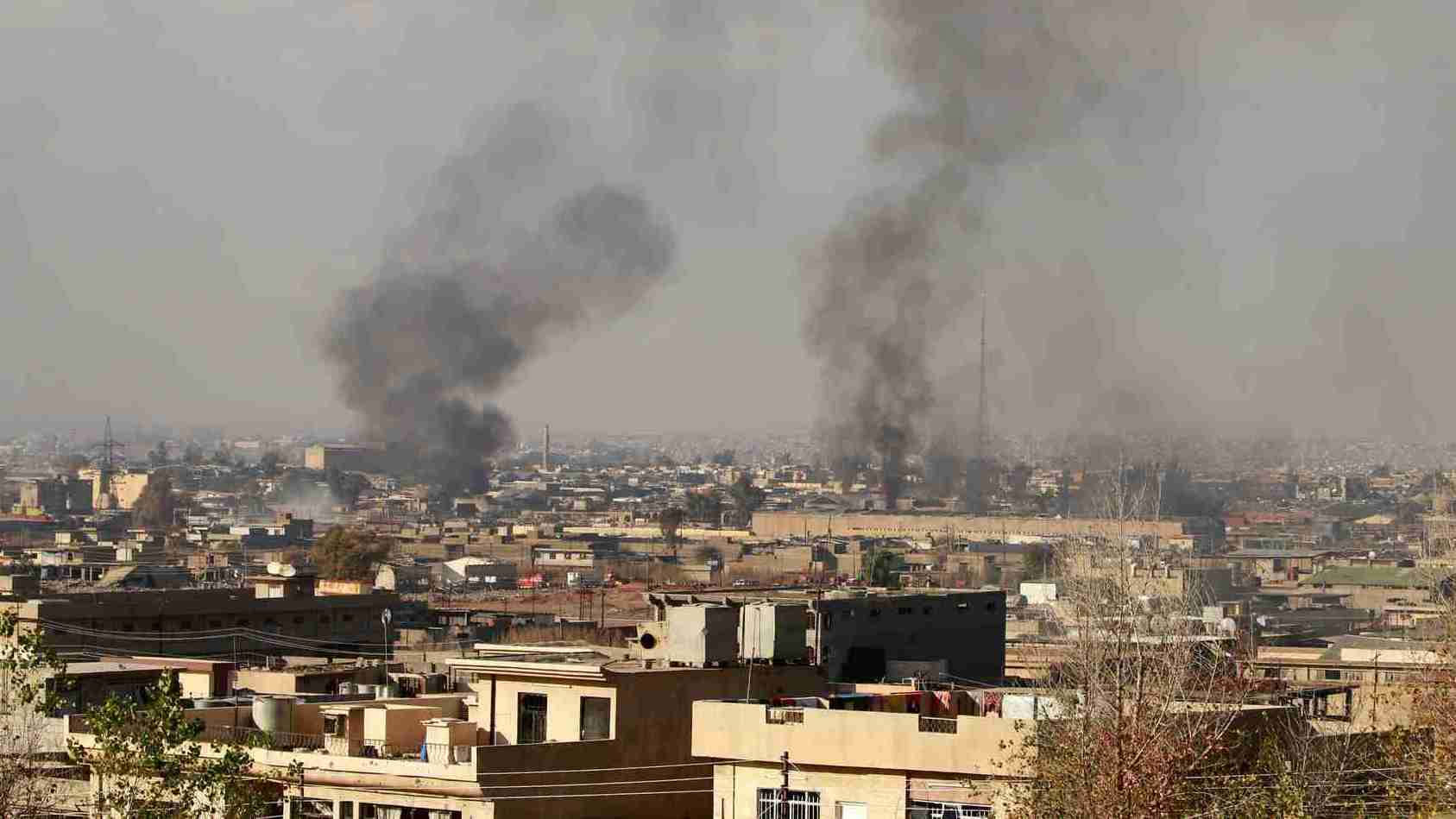
Iraqi government forces are advancing further in a major offensive to retake the northern city of Mosul from Islamic State (IS) militants.
In the second phase launched on December 29 of the offensive, Iraqi federal police and army soldiers on Wednesday recaptured the Wahda neighborhood in the city's southeastern part after fierce clashes with extremist militants, a statement by the Iraqi Joint Operations Command said.
The advance brought them closer to the center of the east side of the city, which is IS militants' largest and last stronghold in northern Iraq. In several nearby neighborhoods, Iraqi forces have been engaged in heavy fighting with slow progresses after Tuesday's recovery of the al-Mithaq neighborhood.
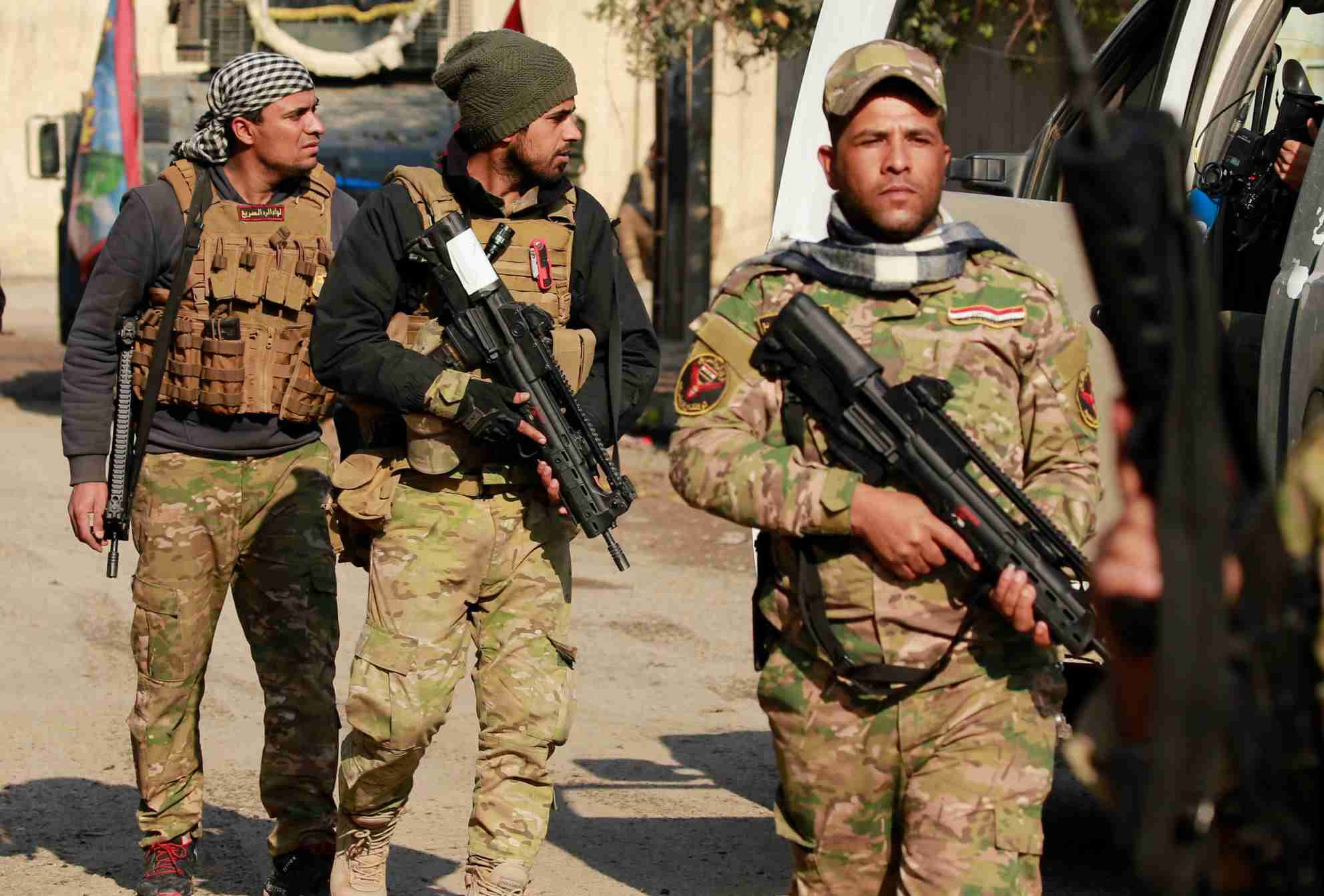
Iraqi rapid response forces cary their weapons during battle with IS militants in eastern Mosul, Iraq, January 4, 2017. /CFP PHoto
Iraqi rapid response forces cary their weapons during battle with IS militants in eastern Mosul, Iraq, January 4, 2017. /CFP PHoto
Fighting continued Wednesday on the northern and eastern fronts, killing more than a dozen militants, according to the statement from the Iraqi military.
Elite forces of Iraq's Counter-Terrorism Service operating on the eastern front have cleared areas they recaptured earlier, including a vast industrial area on Tuesday.
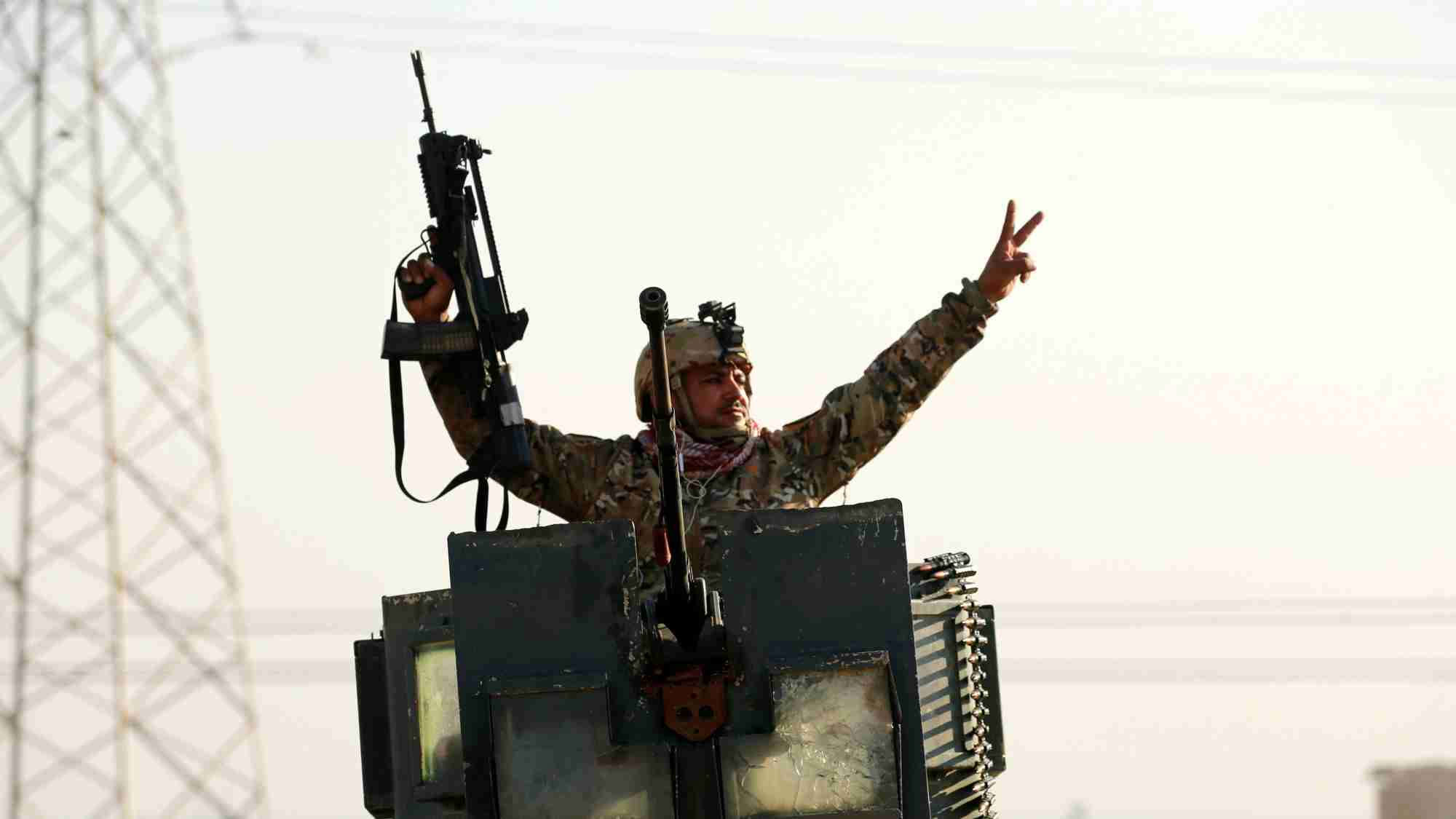
A member of Iraqi rapid response forces gestures during a battle with IS militants in eastern Mosul, Iraq, January 3, 2017. /CFP Photo
A member of Iraqi rapid response forces gestures during a battle with IS militants in eastern Mosul, Iraq, January 3, 2017. /CFP Photo
The offensive to free Mosul is being intensified. The military coalition in Iraq led by the US doubled the size of its adviser corps to about 450 people in the second phase, US Air Force Col. John Dorrian told reporters at the Pentagon on Wednesday, speaking from coalition headquarters in the Iraqi capital Baghdad.
In the past weeks, battles in Mosul had slowed as extremist militants used locals as human shields, resorted to suicide car bombs and made mortar and sniper attacks in stiff resistance.
Since the offensive was launched in October, military operations have displaced over 125,000 people in Mosul and its adjacent districts, and recent fighting has forced people to flee at a rate of 2,300 daily, up from 1,600, said the UN Office for the Coordination of Humanitarian Affairs.
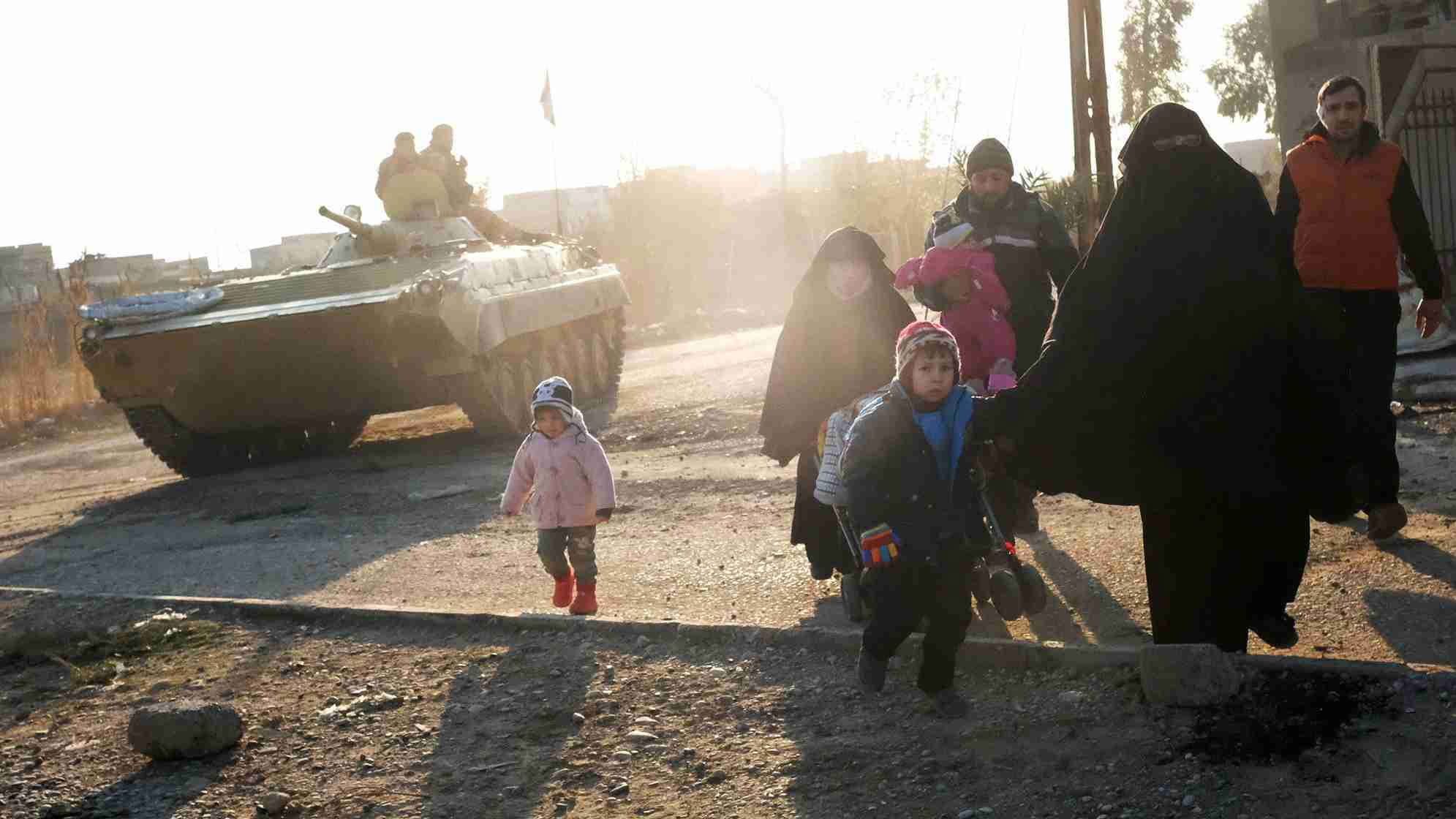
Civilians walk past Iraqi forces as they flee Mosul's southeastern neighbourhood on January 3, 2017, during an ongoing military operation against Islamic State (IS) group jihadists. /CFP Photo
Civilians walk past Iraqi forces as they flee Mosul's southeastern neighbourhood on January 3, 2017, during an ongoing military operation against Islamic State (IS) group jihadists. /CFP Photo
More than 1.5 million people were trapped in the city of roughly 2 million population previously. Cold winter worsened the conditions for the displaced people who suffered severe shortages of food and water, while camps and other emergency shelters reached maximum capacity.
Iraqi Prime Minister Haider al-Abadi told the press on December 29 it would take three months to eliminate the IS militants in Mosul. The Iraqi military said they have so far recaptured about half the neighborhoods in east Mosul.
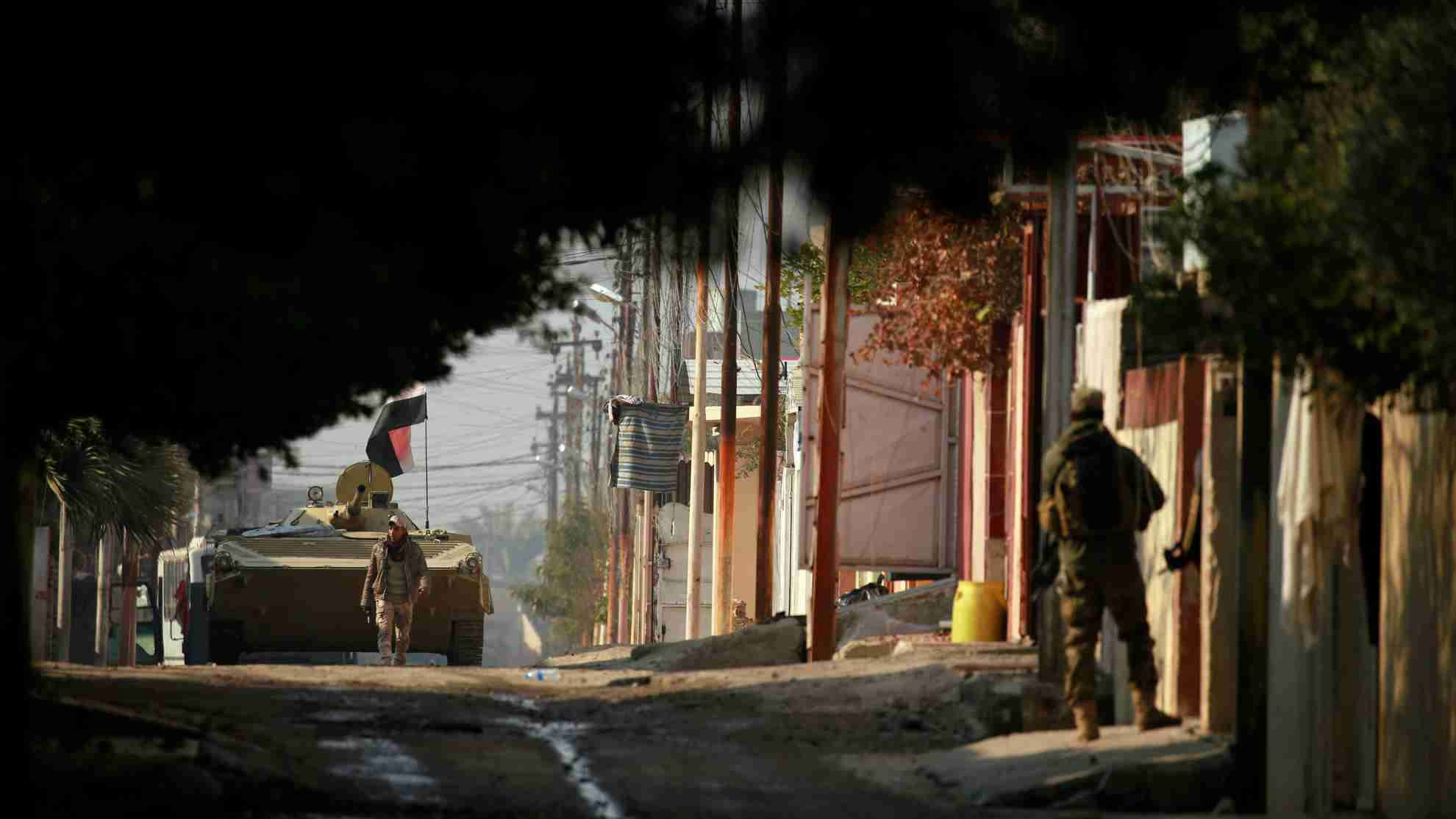
Military vehicles of Iraqi rapid response forces are seen during battle with IS militants in eastern Mosul, Iraq, January 4, 2017. /CFP Photo
Military vehicles of Iraqi rapid response forces are seen during battle with IS militants in eastern Mosul, Iraq, January 4, 2017. /CFP Photo
In several neighborhoods on the outskirts that Iraqi forces retook in November, Xinhua reporters on Wednesday saw people moving freely and some shops had resumed business. Buildings along streets leading to the city center were more badly damaged, major crossroads were being guarded by armored vehicles.
At a home turned into an observation post on the battlefront in the Zuhour neighborhood, Xinhua reporters saw from broken windows a militant position dozens of meters away.
Mosul, some 400 kilometers north of Baghdad, has been under IS control since June 2014, when Iraqi government forces abandoned their weapons and fled, enabling IS militants to take control of parts of Iraq's northern and western regions.
(Source: Xinhua)
6243km

SITEMAP
Copyright © 2018 CGTN. Beijing ICP prepared NO.16065310-3
Copyright © 2018 CGTN. Beijing ICP prepared NO.16065310-3